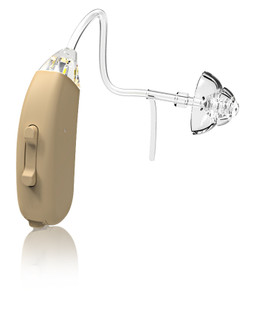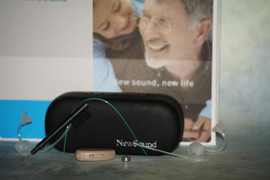Safeguard Your Soundscape Tips to Prevent Hearing Loss
Posted by DR Paul on Jul 01, 2024
In a world filled with constant noise, safeguarding our hearing is more critical than ever. Hearing loss is not only a concern for the elderly but can affect anyone at any stage of life. Whether you already experience hearing loss or are looking to buy a hearing aid, this guide will offer valuable insights into best practices to prevent further damage.
Understanding the Importance of Hearing Health
Hearing is one of the five senses that play an essential role in our daily lives. It allows us to communicate effectively, enjoy music, and stay alert to our surroundings. Unfortunately, many people neglect their hearing health until it's too late. Protecting your ears should be a priority for everyone, especially if you already experience hearing difficulties.
The Growing Problem of Hearing Loss
Hearing loss is becoming increasingly common. According to the World Health Organization, over 1.5 billion people globally live with some degree of hearing loss. By 2050, this number could rise to over 2.5 billion. This alarming trend underscores the need for proactive measures to protect our hearing.
Recognizing the Early Signs of Hearing Loss
Early detection is crucial in managing hearing loss. Common signs include difficulty understanding conversations, frequently asking others to repeat themselves, and turning up the volume on electronic devices. If you notice these symptoms, consider getting a hearing test at hear-better.com.
The Role of Volume in Hearing Health
One of the primary culprits of hearing loss is exposure to loud noises. Sounds above 85 decibels can cause permanent damage after prolonged exposure. Everyday sources of such noise include concerts, traffic, and even household appliances. Use noise-canceling headphones and keep the volume at a safe level to protect your ears.
Using Hearing Protection in Noisy Environments
When you can't avoid loud environments, wearing hearing protection like earplugs or noise-canceling earmuffs can make a significant difference. Whether you're at a concert, using power tools, or attending a sporting event, these protective gears are essential in preventing hearing damage.
Breaks and Rest Periods for Your Ears
Just like any other part of your body, your ears need rest. Continuous exposure to noise can be detrimental. Take regular breaks if you're in a noisy environment, and spend some time in quiet settings to give your ears a much-needed rest.
The Impact of Headphones and Earbuds
Many people use headphones and earbuds daily, often at high volumes. This habit can be harmful to your hearing. Choose over-the-ear headphones instead of earbuds and follow the 60/60 rule—listen at 60% volume for no more than 60 minutes at a time.
Regular Hearing Check-Ups
Regular hearing check-ups are vital for maintaining your hearing health. Schedule an annual hearing test, especially if you're frequently exposed to loud noises. Early detection can help you take steps to prevent further hearing loss and explore options like hearing aids.
Maintaining a Healthy Lifestyle
A healthy lifestyle can positively impact your hearing health. Exercise improves blood flow to your ears, while a balanced diet provides the nutrients necessary for optimal ear function. Avoid smoking, as it can increase the risk of hearing loss.
Protecting Against Infections
Ear infections can lead to hearing loss if left untreated. Keep your ears dry, especially after swimming, and avoid inserting objects like cotton swabs into your ears. If you experience pain or discomfort, consult a healthcare professional promptly.
The Benefits of Wearing Hearing Aids
For those already experiencing hearing loss, hearing aids can significantly improve the quality of life. Modern hearing aids are discreet and powerful, offering features like noise reduction and Bluetooth connectivity. Explore options at hear-better.com to find a device that suits your needs.
Educating Yourself About Hearing Health
Knowledge is power. Educate yourself and others about the importance of hearing health. Share information with family and friends, and encourage them to take steps to protect their hearing as well.
The Role of Technology in Hearing Protection
Advances in technology are making it easier to protect our hearing. Smartphone apps can measure noise levels, alerting you when the environment is too loud. Additionally, custom-molded earplugs and high-fidelity ear protection are becoming more accessible.
Building a Supportive Community
Connecting with others who are also focused on hearing health can be incredibly beneficial. Join online forums or local support groups to share experiences, tips, and encouragement. A supportive community can provide valuable resources and motivation to maintain good hearing habits.
Conclusion
Protecting your hearing is an ongoing process that requires awareness and effort. By incorporating these best practices into your daily routine, you can significantly reduce the risk of hearing loss. Remember, early detection and proactive measures are key. For those already experiencing hearing difficulties, exploring hearing aids at hear-better.com can help you regain control of your auditory experience.
Taking care of your hearing today ensures that you can continue to enjoy the sounds of life tomorrow. Don’t wait until it’s too late—start implementing these strategies now and experience the benefits of better hearing for years to come.
For more information and personalized advice, visit hear-better.com and discover how you can protect and enhance your hearing health.










